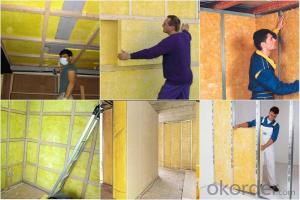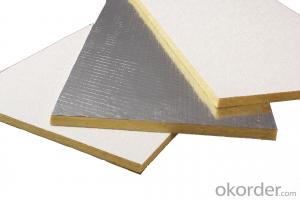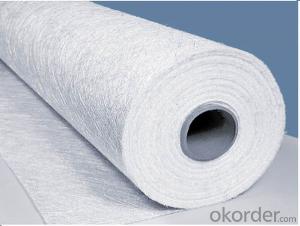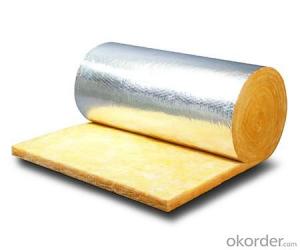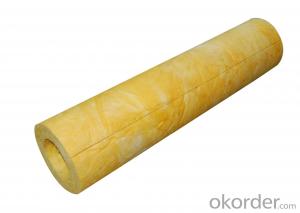free sample offered glass wool board/glass wool insulation/glass wool price
- Loading Port:
- Tianjin
- Payment Terms:
- TT OR LC
- Min Order Qty:
- 5000 m²
- Supply Capability:
- 20000 m²/month
OKorder Service Pledge
OKorder Financial Service
You Might Also Like
1.Description of Glass Wool Blanket:
Glass wool, which belongs to glass fiber , is a kind of man-made inorganic fiber. It is made from fibrosis glass melt in wool shape, which belongs to inorganic fiber and fiber in its chemical ingredient. Its merit is better in shape, low density and volume, low in thermal conduction, better heat preservation and thermal insulation, fine sound absorption, corrosion-resistant and stable chemical property. Glass wool blanket, glass wool board, glass wool pipe, which made from glass wool, largely use in construction, chemical, electronic, electricity, metallurgy, energy industry and community with good performance in heat preservation, heat insulation, sound absorption.
2.Main features of Glass Wool Blanket:
1) Heat-preservation and heat-insulation, sound absorption and noise reduction
2) Damp proof property
3) Excellent fire proof performance
4) Thermal stability, high temperature heat-stability, durability, high temperature shrinkage resistance
5) Non-poison, not contain rock wool and not grow the mould
6) Thin and long inner fiber
3.Glass Wool Blanket Images:
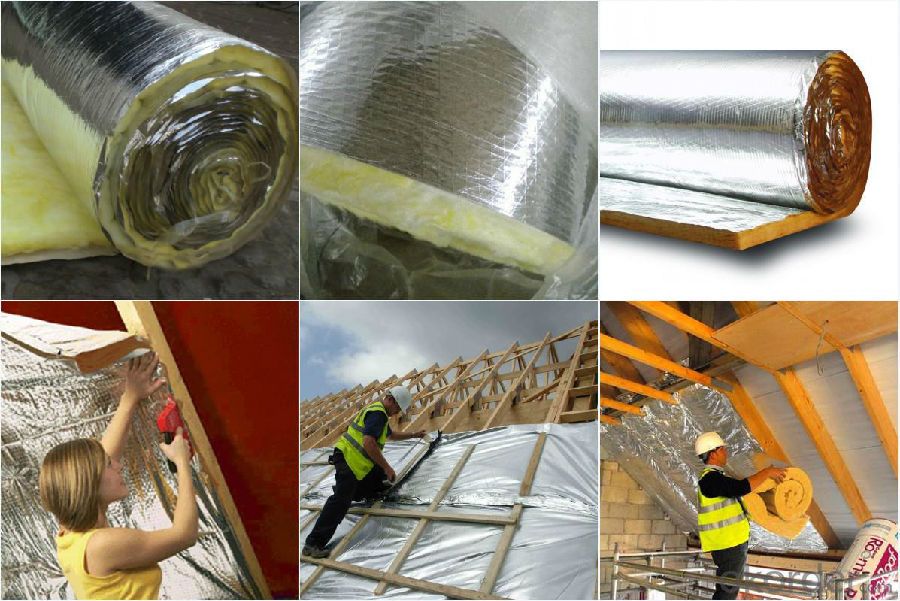
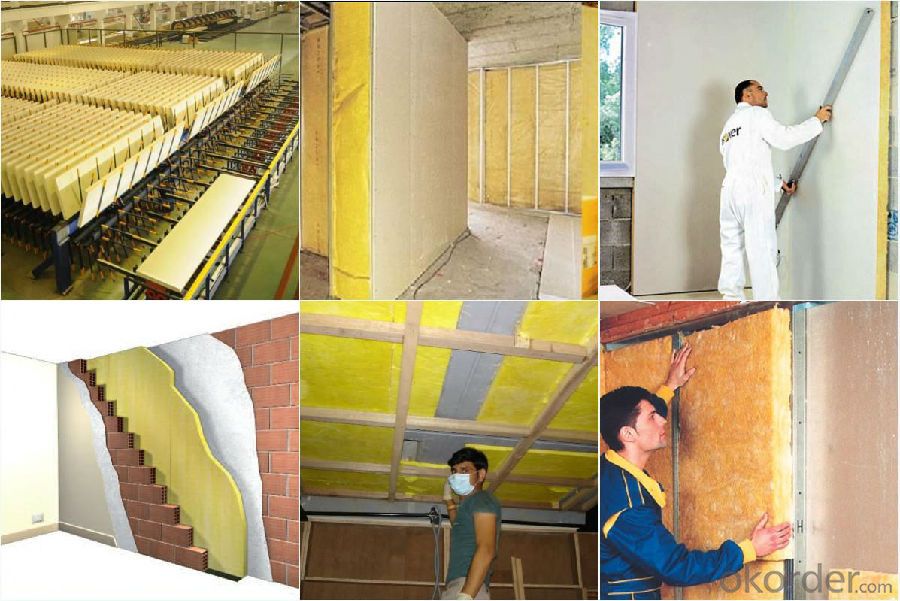
4. Glass Wool Insulation Blanket Technical Parameters:
Property | High/low temperature resistance, oil and fuel resistance, weathering resistance, O zone resistance etc. |
Shape | According to your requirement. |
Color | Any color is available ,according to your requirements. |
Material | NBR, CR, SBR, EPDM, IIR, NR, EP, Silicone, VITON etc. |
Hardness | 30-90ShoreA |
Delivery | In 10 days |
Packing | Plastic bag & carton box or according to your requirements. |
Application | Electronic field, industrial machine & equipment, house-hold appliance, telecommunication, automobile, medical equipment industry etc. |
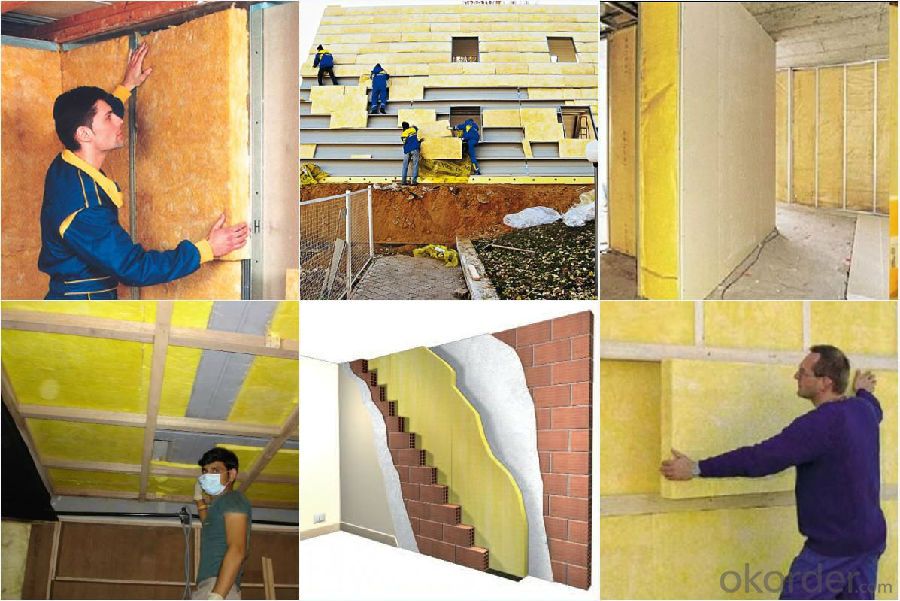
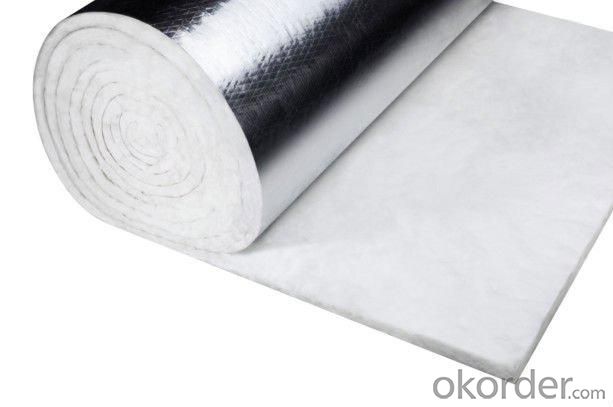
5.FAQ
We have organized several common questions for our clients,may help you sincerely:
①How about your company?
A world class manufacturer & supplier of Glass Wool Blanket is one of the large scale professional investment casting production bases in China,consisting of both casting foundry forging and machining factory. Annually more than 8000 tons Precision casting and forging parts are exported to markets in Europe,America and Japan. OEM casting and forging service available according to customer’s requirement.
②How to guarantee the quality of the products?
We have established the international advanced quality management system every link from raw material to final product we have strict quality test; We resolutely put an end to unqualified products flowing into the market. At the same time, we will provide necessary follow-up service assurance.
- Q:Is fiberglass mat tissue suitable for insulation in chemical processing plants?
- Yes, fiberglass mat tissue is suitable for insulation in chemical processing plants. Fiberglass mat tissue is made from fine glass fibers bonded together with a binder, which gives it excellent thermal insulation properties. It can withstand high temperatures and is resistant to many chemicals, making it ideal for use in chemical processing plants where there may be exposure to corrosive substances or high heat. Additionally, fiberglass mat tissue is lightweight and easy to install, making it a cost-effective choice for insulation in these types of industrial environments.
- Q:Can fiberglass mat tissue be used in automotive applications?
- Yes, fiberglass mat tissue can be used in automotive applications. It is commonly used as a reinforcement material in automotive parts such as hoods, fenders, and interior panels.
- Q:Does anyone know the hardness value of the heat conductive gasket? Does it contain the hardness of the carrier (glass fiber)?
- The purpose of glass fiber is to make the product more convenient for processing, containing a layer of glass fiber cloth, then the operation process is not easy to damage thermal conductive gasket
- Q:Is fiberglass mat tissue chemically resistant?
- Yes, fiberglass mat tissue is chemically resistant.
- Q:What is the expected lifespan of fiberglass mat tissue in sports facility applications?
- The lifespan of fiberglass mat tissue in sports facility applications can differ based on various factors, including material quality, maintenance level, and usage conditions. However, fiberglass mat tissue generally has a lengthy lifespan and is recognized for its durability. When installed and maintained correctly, fiberglass mat tissue can endure for multiple decades. It is resistant to corrosion, rot, and degradation, making it suitable for use in sports facilities that face moisture, humidity, and other environmental factors. To ensure the longest lifespan for fiberglass mat tissue in sports facility applications, regular inspections, cleanings, and repairs may be necessary. Additionally, it is crucial to adhere to the manufacturer's recommendations for installation and maintenance to achieve optimal performance and longevity. It is important to note that despite its durability, fiberglass mat tissue may still experience gradual wear and tear, particularly in high-impact areas or facilities with heavy usage. In such cases, periodic replacements or repairs may be needed to maintain the material's integrity and functionality. All in all, fiberglass mat tissue is a dependable and long-lasting choice for sports facility applications. With proper care and maintenance, it can deliver exceptional performance and durability for numerous years.
- Q:What are the different fabric finishes available for fiberglass mat tissue?
- There are several different fabric finishes available for fiberglass mat tissue, each offering unique properties and characteristics. Some of the most common fabric finishes include: 1. Polyester: Polyester fabric finishes are widely used in fiberglass mat tissue as they provide excellent strength and durability. This finish helps to improve the overall tear resistance and tensile strength of the fiberglass mat tissue. 2. Polypropylene: Polypropylene fabric finishes are known for their high resistance to chemicals and moisture. This finish helps to enhance the water resistance properties of the fiberglass mat tissue, making it suitable for applications where moisture or chemical exposure is a concern. 3. Acrylic: Acrylic fabric finishes provide good heat resistance and flame retardancy to the fiberglass mat tissue. This finish helps to improve the thermal stability and fire resistance of the material, making it suitable for applications where high temperatures or fire hazards are present. 4. Nylon: Nylon fabric finishes are known for their excellent abrasion resistance and toughness. This finish helps to enhance the durability and wear resistance of the fiberglass mat tissue, making it ideal for applications where frequent contact or friction may occur. 5. Polyethylene: Polyethylene fabric finishes offer excellent resistance to moisture and chemicals. This finish helps to improve the overall water repellency and chemical resistance of the fiberglass mat tissue, making it suitable for outdoor or corrosive environments. 6. Polyurethane: Polyurethane fabric finishes provide good flexibility and elasticity to the fiberglass mat tissue. This finish helps to enhance the material's ability to withstand bending and stretching without breaking or tearing. Overall, the choice of fabric finish for fiberglass mat tissue depends on the specific application requirements. It is important to consider factors such as strength, durability, water resistance, flame retardancy, abrasion resistance, and chemical resistance when selecting the appropriate fabric finish for a particular application.
- Q:How does fiberglass mat tissue perform in terms of dimensional stability?
- Fiberglass mat tissue performs exceptionally well in terms of dimensional stability. Due to its unique composition and manufacturing process, fiberglass mat tissue exhibits minimal shrinkage or expansion when exposed to temperature variations or moisture. This characteristic makes it an ideal material for various applications where dimensional stability is crucial, such as in the construction industry for reinforcing walls, roofs, or floors. The consistent size and shape of fiberglass mat tissue ensure that it maintains its original dimensions over time, providing long-term durability and reliability. Additionally, its dimensional stability allows for precise cutting, shaping, and installation, reducing waste and increasing efficiency in manufacturing processes. Overall, fiberglass mat tissue offers excellent dimensional stability, making it a favored choice in industries where accurate and stable dimensions are vital.
- Q:Is fiberglass mat tissue suitable for underground applications?
- Fiberglass mat tissue is perfect for use underground. This material is widely utilized in various industries like construction, infrastructure, and plumbing because of its exceptional strength, durability, and ability to resist environmental factors. Underground environments often present difficulties such as moisture, high humidity, and corrosive substances, which can compromise traditional materials. However, fiberglass mat tissue is specifically designed to endure these conditions, making it an excellent choice for underground applications. Moreover, its non-combustible nature and resistance to chemicals ensure it is a dependable option for areas where fire safety is a concern. In conclusion, fiberglass mat tissue is a versatile and reliable material that can effectively endure the challenges of underground environments.
- Q:How does the density of fiberglass mat tissue affect its performance?
- The performance of fiberglass mat tissue is significantly impacted by its density. Fiberglass mat tissue finds its use in various applications such as insulation, construction materials, and composite materials. The strength, durability, flexibility, and thermal insulation properties of the fiberglass mat tissue are determined by its density. A higher density fiberglass mat tissue generally offers improved strength and durability. This is because a higher density means that more fiberglass strands are densely packed together, resulting in a denser and stronger material. It can withstand higher loads and impacts, making it suitable for applications that require structural integrity, like the construction or automotive industries. Furthermore, the flexibility of fiberglass mat tissue is also influenced by its density. A lower density fiberglass mat tissue tends to be more pliable and easier to shape. It can be molded into intricate shapes and contours, making it suitable for applications where flexibility is crucial, such as boat manufacturing or automotive body parts. The density of fiberglass mat tissue also affects its thermal insulation properties. Higher density fiberglass mat tissue provides better insulation against heat transfer. It effectively prevents the transfer of heat through conduction, making it ideal for insulation purposes in buildings or piping systems. However, it is important to consider that the choice of fiberglass mat tissue density should be based on the specific requirements of the application. While higher density may offer better strength and durability, it also increases the weight and cost of the material. Therefore, a balance needs to be achieved between the desired performance characteristics and the practicality of the specific application.
- Q:Can fiberglass mat tissue be used for insulation in power plants?
- Yes, fiberglass mat tissue can be used for insulation in power plants. Fiberglass mat tissue is a lightweight and flexible material that is known for its excellent thermal insulation properties. It is often used as a thermal barrier to reduce heat transfer in various applications, including power plants. By insulating the equipment and pipes, fiberglass mat tissue helps to prevent heat loss and increase energy efficiency in power plants. Additionally, fiberglass mat tissue is non-combustible, making it a suitable choice for insulation in environments where fire safety is paramount.
1. Manufacturer Overview |
|
|---|---|
| Location | |
| Year Established | |
| Annual Output Value | |
| Main Markets | |
| Company Certifications | |
2. Manufacturer Certificates |
|
|---|---|
| a) Certification Name | |
| Range | |
| Reference | |
| Validity Period | |
3. Manufacturer Capability |
|
|---|---|
| a)Trade Capacity | |
| Nearest Port | |
| Export Percentage | |
| No.of Employees in Trade Department | |
| Language Spoken: | |
| b)Factory Information | |
| Factory Size: | |
| No. of Production Lines | |
| Contract Manufacturing | |
| Product Price Range | |
Send your message to us
free sample offered glass wool board/glass wool insulation/glass wool price
- Loading Port:
- Tianjin
- Payment Terms:
- TT OR LC
- Min Order Qty:
- 5000 m²
- Supply Capability:
- 20000 m²/month
OKorder Service Pledge
OKorder Financial Service
Similar products
New products
Hot products
Hot Searches
Related keywords
